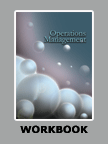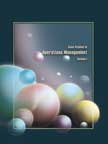Mango: Outsourcing of Non-core Activities to Keep up with Fashion
|
|
ICMR HOME | Case Studies Collection
Case Details:
Case Code : OPER106
Case Length : 20 Pages
Period : 1984-2012
Organization : Mango MNG Holding SL.
Pub Date : 2013
Teaching Note :Not Available
Countries : Spain, Global
Industry : Retail
To download Mango: Outsourcing of Non-core Activities to Keep up with Fashion case study
(Case Code: OPER106) click on the button below , and select the case from the list of available cases:

Price:
For delivery in electronic format: Rs. 500;
For delivery through courier (within India): Rs. 500 +Shipping & Handling Charges extra
OR

Buy Now
|
» Operations Case Studies
» Operations Short Case Studies
» View Detailed Pricing Info
» How To Order This Case
» Business Case Studies
» Case Studies by Area
» Case Studies by Industry
» Case Studies by Company
Please note:
This case study was compiled from published sources, and is intended to be used as a basis for class discussion. It is not intended to illustrate either effective or ineffective handling of a management situation. Nor is it a primary information source.
Chat with us

Please leave your feedback

|
|




<< Previous
"What differentiates Mango from its competition is that it has done a very good job of identifying its core business (designing and distributing garments), and that it has outsourced everything that it is not interested in doing (manufacturing). This enables the company to be more efficient since the manufacturing part [of the supply chain] is one of the areas that uses the most manual labor"
1
- Marcel Planellas, Secretary General, ESADE Business School
2
Focus on Core Activities to Remain Stylish
|
Spain-based Mango MNG Holding SL (Mango), the flagship of a group of companies involved in design, manufacture, and distribution of garments and fashion accessories, had more than 2400 stores across 107 countries as of 2012. The second largest textile exporter in Spain, the company sold its garments and accessories through the chain MANGO and menswear through H.E. by MANGO. For the year ending December 2011, Mango posted revenues of € 1.41 billion, which was 11% higher than the revenue in 2010. Non-Spanish countries accounted for 84% of the total turnover.
|

|
Mango was one of the pioneers of fast fashion retail. In the traditional model, the time for design was almost six months and manufacturing time was three months. Mango, on the other hand, was able to design and put up garments in the latest fashion in its stores across the world within a span of three to four months. It also updated its collections all through the year. Mango was quick to react to new trends in fashion, and continuously replenished its stores with garments / accessories that were in vogue.
The company's ability to react quickly to changes in fashion and bring out new collections within a short time was attributed to its business model that involved managing core activities like design and distribution in-house while outsourcing non-core, labor intensive activity like manufacturing. When it came to retailing, Mango had own stores, as well as franchisees. This enabled the company to expand to several international markets rapidly. According to Marcel Planellas (Planellas), Secretary General, ESADE Business School, "Thanks to this system. Mango is also the sort of company that can ride out any type of crisis. Its business model enables it to be more flexible whenever there is a change in the pattern of demand."3
Background Note
- Next Page>>
|
|









